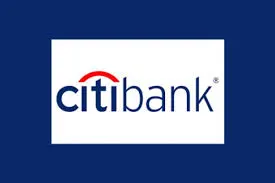Exploring Retirement Options: A Comprehensive Guide to Planning Your Future
Exploring Retirement Options: A Comprehensive Guide to Planning Your Future
Exploring Retirement Options: A Comprehensive Guide to Planning Your Future
Retirement is a significant milestone that opens up a world of possibilities and opportunities. However, navigating the various retirement options can be overwhelming.
From employer-sponsored plans to individual savings accounts, understanding the different retirement options is crucial for securing a financially stable and fulfilling future.
In this blog content, we will explore the retirement options available to you, address frequently asked questions, and provide comprehensive answers to help you make informed decisions about planning your retirement.
Understanding Retirement Options and Their Importance
Retirement options refer to the various plans and accounts available to individuals to save and invest for retirement. These options play a vital role in securing a financially stable future by providing income, tax advantages, and growth potential. Understanding the different retirement options allows you to choose the ones that align with your goals and help you achieve a comfortable retirement.
What Are Employer-Sponsored Retirement Plans?
Employer-sponsored retirement plans are retirement savings options offered by employers to their employees. These plans allow employees to contribute a portion of their salary towards retirement savings, often with the added benefit of employer contributions. Common employer-sponsored plans include 401(k) plans, 403(b) plans (for non-profit organizations), and SIMPLE IRA plans.
What Is a 401(k) Plan, and How Does It Work?
A 401(k) plan is a popular employer-sponsored retirement plan that allows employees to contribute a portion of their salary on a pre-tax basis. These contributions can grow tax-deferred until withdrawal in retirement. Many employers offer matching contributions up to a certain percentage, which is essentially free money. 401(k) plans offer investment options for employees to choose from, allowing for potential growth over time.
How Does a Defined Benefit Pension Plan Work?
A defined benefit pension plan is an employer-sponsored retirement plan that guarantees a specific benefit amount based on factors such as salary and years of service. The employer is responsible for funding and managing the plan, and employees receive regular payments during retirement based on a predetermined formula. Defined benefit pension plans provide a predictable income stream in retirement.
What Are Individual Retirement Accounts (IRAs)?
Individual Retirement Accounts (IRAs) are personal retirement savings accounts that individuals can contribute to on their own, outside of an employer-sponsored plan. There are two main types of IRAs: traditional IRAs and Roth IRAs. IRAs offer a range of investment options and provide tax advantages, such as tax-deductible contributions for traditional IRAs or tax-free withdrawals for qualified distributions in Roth IRAs.
What Is a Roth IRA, and How Does It Differ from a Traditional IRA?
A Roth IRA is a type of individual retirement account where contributions are made with after-tax dollars. Roth IRAs offer tax-free growth and tax-free withdrawals in retirement, as long as certain requirements are met. In contrast, traditional IRAs allow for tax-deductible contributions but require taxes to be paid upon withdrawal in retirement. The choice between a Roth IRA and a traditional IRA depends on individual circumstances and tax strategies.
What Are Health Savings Accounts (HSAs)?
Health Savings Accounts (HSAs) are tax-advantaged accounts that allow individuals to save money for qualified medical expenses. HSAs are available to individuals with high-deductible health insurance plans. Contributions to an HSA are tax-deductible, and withdrawals used for qualified medical expenses are tax-free. HSAs can also be used as retirement savings vehicles, as funds can be invested and carried forward indefinitely.
Are There Retirement Options for Self-Employed Individuals?
Yes, self-employed individuals have retirement options available to them. Some popular retirement options for self-employed individuals include Simplified Employee Pension (SEP) IRAs, Solo 401(k) plans, and SIMPLE IRAs. These plans allow self-employed individuals to contribute to their own retirement savings and enjoy potential tax advantages.
Can I Combine Multiple Retirement Options?
Yes, it is possible to combine multiple retirement options to maximize your savings and take advantage of different benefits. For example, you can contribute to both a 401(k) plan offered by your employer and an individual IRA. However, it’s important to understand the contribution limits, tax implications, and eligibility requirements for each retirement option to ensure compliance and optimize your retirement savings strategy.
How Do I Determine Which Retirement Option Is Right for Me?
Choosing the right retirement option depends on factors such as your employment status, income level, tax situation, and investment preferences. Consider your eligibility, contribution limits, tax advantages, investment options, and withdrawal rules when evaluating retirement options. It may be beneficial to consult with a financial advisor who can assess your unique situation and provide personalized recommendations.
What Are the Tax Implications of Different Retirement Options?
Retirement options have varying tax implications. For example, contributions to traditional IRAs and 401(k) plans are generally tax-deductible, while withdrawals in retirement are subject to income tax. Roth IRAs offer tax-free withdrawals in retirement but have after-tax contributions. Health savings accounts (HSAs) provide tax deductions for contributions and tax-free withdrawals for qualified medical expenses. Understanding the tax implications helps optimize your retirement planning.
How Can I Optimize My Retirement Savings for a Secure Future?
To optimize your retirement savings, start by determining your retirement goals and estimating your future financial needs. Maximize contributions to employer-sponsored plans, take advantage of employer matches, and consider additional contributions to individual retirement accounts. Diversify your investments, regularly review and rebalance your portfolio, and seek professional advice when needed. Regularly reassess your retirement plan and adjust your savings strategy as necessary to ensure a secure and comfortable future.





